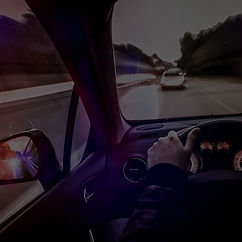24-HOUR LINE: 1-877-991-0808
CALL: 403-233-9239
ALBERTA’S DUI LAWYERS
If you are looking for experienced DUI lawyers in Alberta, look no further. Our experienced team of impaired driving lawyers are committed to providing exceptional representation in all areas of criminal driving defence. We travel to all jurisdictions in Alberta, as well as Saskatchewan, British Columbia, and Manitoba.
Whether you have been charged with impaired driving, driving ‘over 80’, refusing a breath sample, dangerous driving, or flight, our DUI lawyers are here to help get you back on the road – and out of Court – as soon as possible. With unparalleled experience, our office will ensure you understand all of your options and are fully informed about how we will defend your case.
QUESTIONS?
Your concerns are our concerns. Call now and get answers!
Criminal Driving Offences and Suspensions
If you have been charged with any of the following, call Roadlawyers now – don’t wait to start your defence.
IMPAIRED DRIVING
There are now four Criminal Code offences that target “impaired driving”: impaired driving, driving over the legal alcohol limit, driving over the legal drug limit, or driving over the combined drug/alcohol limit. These are found in section 320.14(1)(a)-(d) of the Criminal Code.
Previously, the legal limit was 80 milligrams percent, however, with the latest amendments, anyone whose blood alcohol is equal to or exceeding 80 milligrams percent is at risk of convicting. In addition to lowering the limit by 1 milligram percent, these new amendments allow the Courts to ‘count back’ your blood alcohol concentration if your samples are seized outside of two hours – no expert required.
Under the Code, the word ‘operate’ is defined to include situations involving care and control (i.e. sleeping or just sitting in the car). These impaired driving laws are unique and, as drafted, cause significant uncertainty due to the two hour time frame.
While the impaired driving offence is generally proven by relying on physical indicia, often combined with a driving pattern, the remaining offences are proven strictly based on bodily samples. As such, much of any impaired driving defence will be focused on the exclusion of bodily samples, either breath, blood, or urine.
Impaired driving and exceeding the legal limit offences are both subject to mandatory minimums. The most common offences, those involving alcohol, have mandatory minimums as follows:
Impaired Driving: $1,000 fine, 1-year driving prohibition
80 mg% - 119 mg%: $1,000 fine, 1-year driving prohibition
120 mg% - 159mg%: $1,500 fine, 1-year driving prohibition
160 mg% and over: $2,000 fine, 1-year driving prohibition
These mandatory minimums do not apply to second offenders. If you are convicted of multiple impaired offences, the mandatory minimums will include jail.
REFUSAL TO PROVIDE A BREATH/BLOOD/URINE SAMPLE
A significant portion of impaired driving investigations is focused on the seizure of bodily samples – either breath, blood, or urine. The most common manner of investigation involves the seizure of roadside breath samples and evidentiary breath samples at the police station, or in the checkstop bus.
Generally speaking, if a lawful demand for samples is made a driver is legally obligated to provide a breath sample. If a demand for samples is made and the driver either refuses to provide a sample OR is unsuccessful in providing a sample, they will be charged with refusing or failing to comply with a demand.
Refusing or failing to comply offences are also subject to mandatory minimum sentencing, which starts at $2,000 fine with a 1-year driving prohibition.
DANGEROUS DRIVING
Dangerous driving throws a wider umbrella than impaired driving or driving over the limit. To be convicted of dangerous driving, the Crown must prove that your manner of driving was dangerous, or a marked departure from the norm, considering all of the circumstances.
Under certain circumstances, any driving pattern could be objectively dangerous – running a stop sign, making a lane change without signaling, speeding, crossing on a solid line, or even driving too slow. Impaired driving can sometimes amount to dangerous driving and so can falling asleep at the wheel. What will often tip the scale is the surrounding circumstances – poor road conditions, heavy traffic, and visible pedestrian, among others.
While there is no administrative suspension associated with dangerous driving, if you are convicted you will receive a discretionary suspension from the Courts and a mandatory one year suspension under the Traffic Safety Act. Unlike impaired driving or refusing to provide a breath sample, those convicted of dangerous driving are not eligible for the interlock device.
FLIGHT FROM POLICE
Of all the driving offences in the Criminal Code, flight from the police is amongst the most serious. This offence is reserved for circumstances where an individual does not pull over for the police, resulting in some manner of pursuit. The pursuit can be brief or extensive, high or slow speed. While it is not mandatory, a conviction under this offence can often come with a jail sentence.
Often times, when our DUI lawyers are faced with a criminal flight charge, we analyze the disclosure to see if the Crown can prove every element of the offence. If they can, we turn our mind to the potential for a non-criminal resolution, relying on the Traffic Safety Act offence relating to failing to stop for a police officer.
DEATH OR BODILY HARM
Almost every criminal driving offences can be charged in stages of harm. The most basic of each offence involves no harm – simple impaired, refusal, or dangerous driving.
However, if an accident occurs and someone is injured, or killed, the charge escalates accordingly. Almost invariably, criminal driving offences involving in injury or death will result in a jail sentence if the driver is convicted after trial.
HIT AND RUN
Under both the Criminal Code and the Traffic Safety Act, a driver involved in an accident is legally obligated to remain at the scene and offer reasonable assistance to those in need. If they are unable to remain at the scene, they must report the accident to the authorities in the prescribed manner.
Offences for failing to remain at the scene of an accident, particularly when it is clear that someone has been injured, are considered very serious. If convicted criminally, a driver will be facing a hefty fine or even time in jail. If convicted provincially, a driver will be facing a large fine and substantial demerits or a suspension.
DRIVING WHILE DISQUALIFIED
If you are prohibited from driving due to a criminal conviction, or if you are suspended under the Traffic Safety Act, the act of driving becomes an offence in and of itself.
This means if you are caught driving while under a prohibition, you could be charged with driving while disqualified. In most Alberta jurisdictions, the starting point sentence is 30 days jail and a further suspension. While this is not mandatory, it is what most Crowns will seek for a sentence, and judges often agree.
If you are provincially suspended and are caught driving, you will face a fine and a further 6 month suspension. This 6 month suspension will be consecutive to whatever suspension or disqualification you are currently serving. If you are convicted more than once, a jail sentence is not out of the question.







